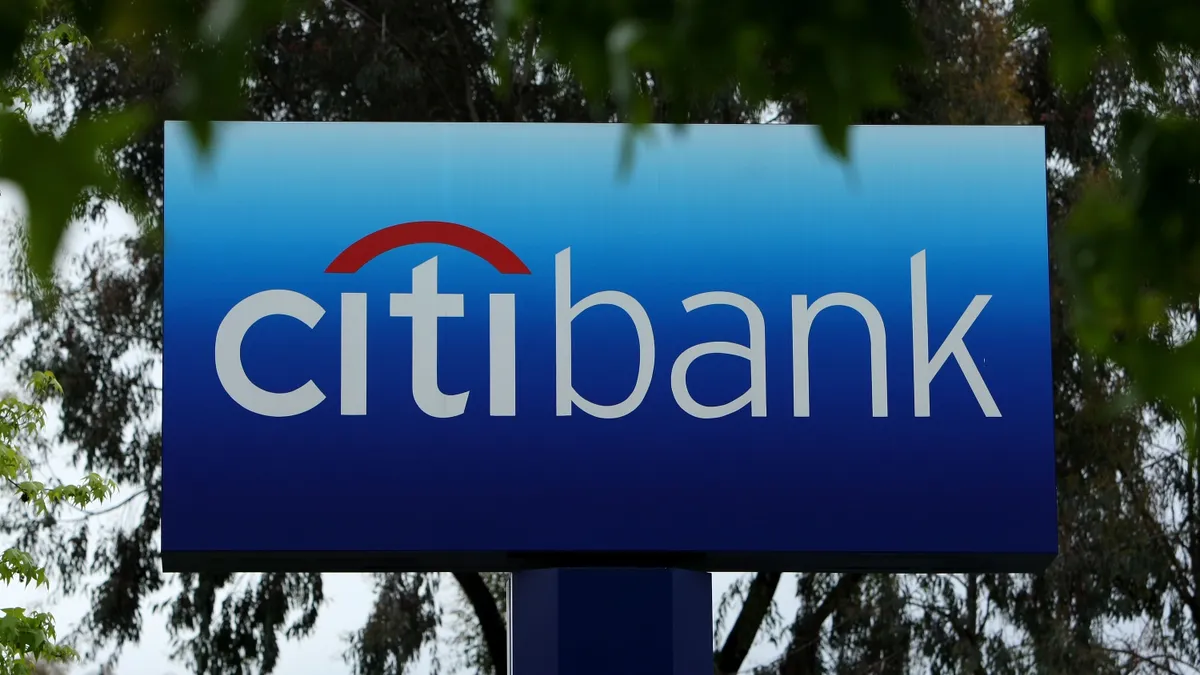Dive Brief:
- The U.K.’s Financial Conduct Authority (FCA) fined Citi more than £12.5 million ($14.8 million) for failing to effectively monitor trading activity for potential insider deals and market manipulation between 2016 and 2018, the regulator said Friday.
- The FCA in 2016 introduced expanded requirements for detecting and reporting market abuse. It took Citi 18 months to assess the effectiveness of its automatic surveillance systems, the FCA said. And when it did, the bank realized it had almost no oversight into the second-most serious category of risks on nearly half of trades during that time.
- Citi qualified for a 30% discount on the fine by cooperating with regulators. The penalty initially was set at more than £17.9 million.
Dive Insight:
“Flawed implementation” of Market Abuse Regulation (MAR) trade surveillance requirements by Citi’s London-based global markets unit “resulted in significant gaps in its arrangements, systems and procedures,” the FCA said in a statement Friday.
“The framework for market integrity depends on the partnership between the FCA and market participants using data to detect suspicious trading,” Mark Steward, the regulator’s executive director of enforcement and market oversight, said Friday. “By not fully implementing the new provisions when required, Citigroup Global Markets did not carry its full weight in this partnership.”
This wouldn’t be the first time Citi’s controls have come under fire. The Office of the Comptroller of the Currency (OCC) fined the bank $400 million in October 2020 over persistent issues in risk management, data governance and internal controls — potentially spotlighted by an errant $900 million manual transaction months earlier to creditors of the cosmetics company Revlon.
The Bank of England in 2019 fined Citi £44 million over inaccurate reporting about its capital and liquidity levels.
Citi, for its part, has budgeted $11 billion for tech spending this year.
“Citi is pleased to put this matter behind us,” a spokesperson for the bank told Bloomberg, Reuters and the Financial Times.
After Citi’s 2018 assessment of its compliance with MAR rules, the bank wrote, “It does not appear that there was appropriate governance, regulatory change management oversight, or appropriate escalation to management about this issue.”
Senior leadership at the bank’s compliance group has changed since then, the FCA said. The identified surveillance gaps were fixed by the end of 2018, according to Bloomberg.














